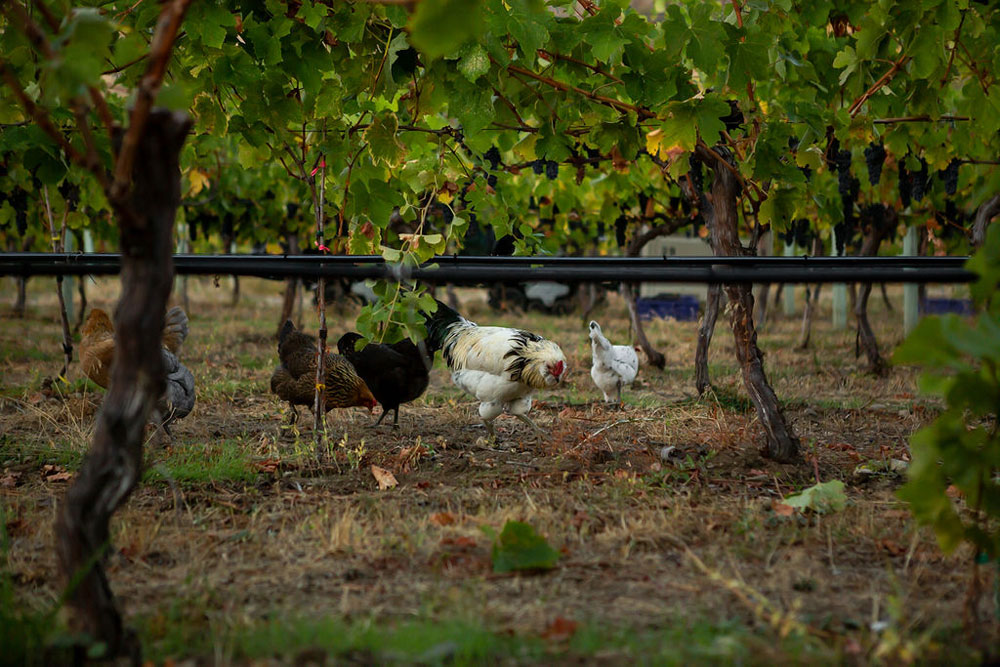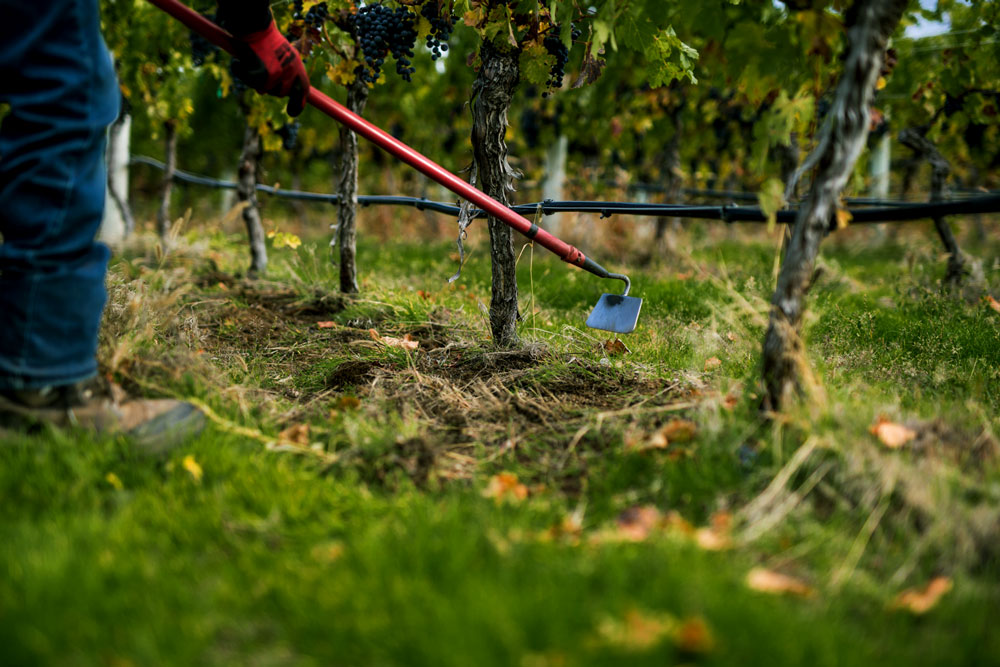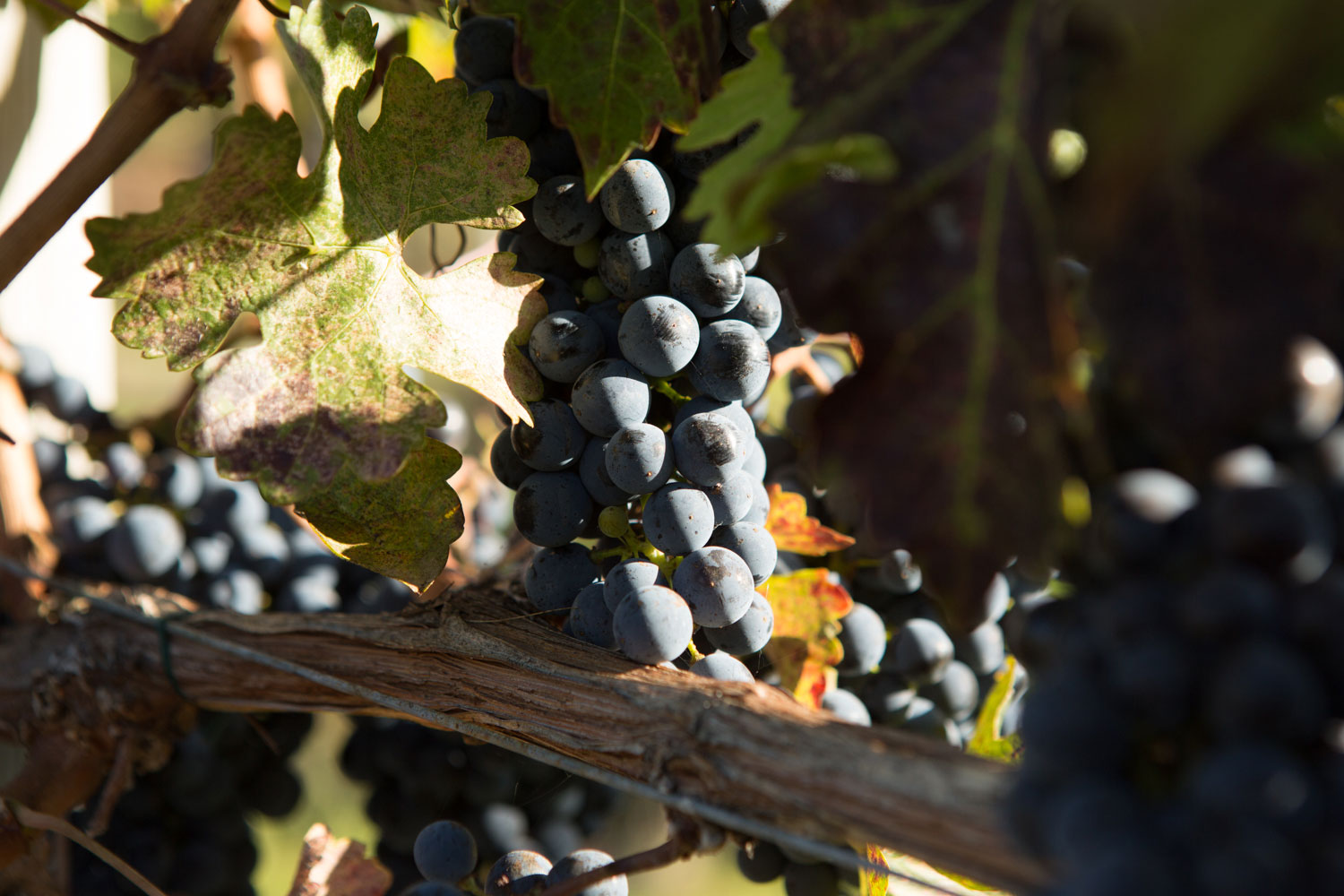
Each bottle of wine we produce originates from a specific, carefully selected, certified organic vineyard plot, ensuring a pure expression of the terroir. Our dedication to single variety wines allows us to showcase the unique characteristics of each grape type. By focusing on individual vineyards and grape varieties, we create wines that not only reflect the unique qualities of their origin but also highlight the distinct flavors and aromas inherent to each grape. This meticulous approach results in wines with exceptional clarity, complexity, and depth, offering a truly singular tasting experience that distinguishes Phantom Creek Estates in the world of fine wines.

Although the soil types vary in our vineyards, they all provide excellent balance between water retention and drainage crucial for vine growth and grape ripening. Soil supports the vines’ root systems, and its physical parameters determine how much water and nutrients the vines can take up. The soils at Becker Vineyard exhibit similarities to those of Phantom Creek, characterized predominantly as Sand or Sandy loam. However, a notable distinction lies in the prevalence of Alluvial rounded rocks, which vary considerably in concentration, ranging from 10% to 40% across different locations within the vineyard. Conversely, Phantom Creek's Osoyoos Sandy Loam Soils Type comprises a blend of medium sand and sandy loam, with minimal alluvial rounded rocks accounting for less than 2% of the soil composition. Kobau rests upon a glacier-deposited alluvial fan, boasting well-drained, coarse-textured gravelly loams. Lastly, Evernden's soil encompasses a fine-textured amalgamation of sandy and silt loam, underlain by a glacial rock subsurface layer, adding a unique geological dimension to the vineyard's terroir. The Similkameen silt loam prevalent in this region features a surface layer of rocky silt loam overlaying a relatively un-stratified subsoil comprised of rock and silt loam, derived from the gravitational deposition of angular basalt and mica-schists, along with other minerals, during the glacial epochs and subsequent mountainous erosion.
Viticulture Philosophy
Organic Viticulture
At Phantom Creek Estates, we understand that exceptional wines are born from high-quality grapes, and that begins with a healthy vineyard ecosystem. Our unwavering commitment to organic agriculture is the cornerstone of our winemaking philosophy.
We rely on natural fertilizers, such as animal manure and compost, and employ traditional artisanal techniques to nurture our vineyards, ensuring that they thrive without the need for synthetic herbicides, pesticides or fertilizers. We enrich our soil with compost, providing a slow release of essential nutrients that enhances soil structure and increases biomass within our vineyard. To prevent soil erosion and improve soil vitality, we cultivate cover crops such as legumes, winter vetch and ryegrass that can be ploughed back into the soil as green manure. We reduce monoculture and encourage a more diverse vineyard ecosystem. This comprehensive cultivation approach strengthens the ecological and sustainable aspects of our vineyards.
To allow vines to find their natural balance, we always closely monitor weather conditions in our vineyards to minimize intervention. We use traditional remedies like sulfur, copper and plant-based extract sparingly to combat mildew. Natural methods, such as biological insect control are integral to our approach. Biocontrol utilizes beneficial organisms like parasitic wasps and predatory mites as natural predators to keep pest population in check, without using harmful chemicals and maintain balance of ecosystem. Our canopy management is carried out regularly to promote optimal air circulation and light interception, aiding ripeness of our bunches and bud fruitfulness.
In recognition of our dedication to organic agriculture, all vineyards at Phantom Creek Estates achieved organic certification in 2021 by Ecocert. This certification reflects our commitment to rejecting synthetic chemicals and focusing on soil improvement, biodiversity, and restoring the natural balance of our land.
Biodynamic Farming Practices
Since 2017, Phantom Creek Estates has been committed to exploring biodynamic farming practices. For the vineyard, this means not only a complete avoidance of chemical pesticides and fertilizers but also guiding agricultural activities according to a series of natural remedies and an astronomical calendar. This approach aims to create a self-sustaining and vibrant ecosystem, from the soil to the grapevines, and ultimately to the wine itself. Biodynamics represents a deep reflection on wine production, striving for the purest expression. Each bottle genuinely reflects the terroir of its origin, the vintage, and the unique characteristics of the grapes. Choosing biodynamics is not just for the wine; it is an homage to nature, contributing to the sustainability of our planet. Beyond the vineyards, Phantom Creek Estates continues to practice the principles of sustainable development.
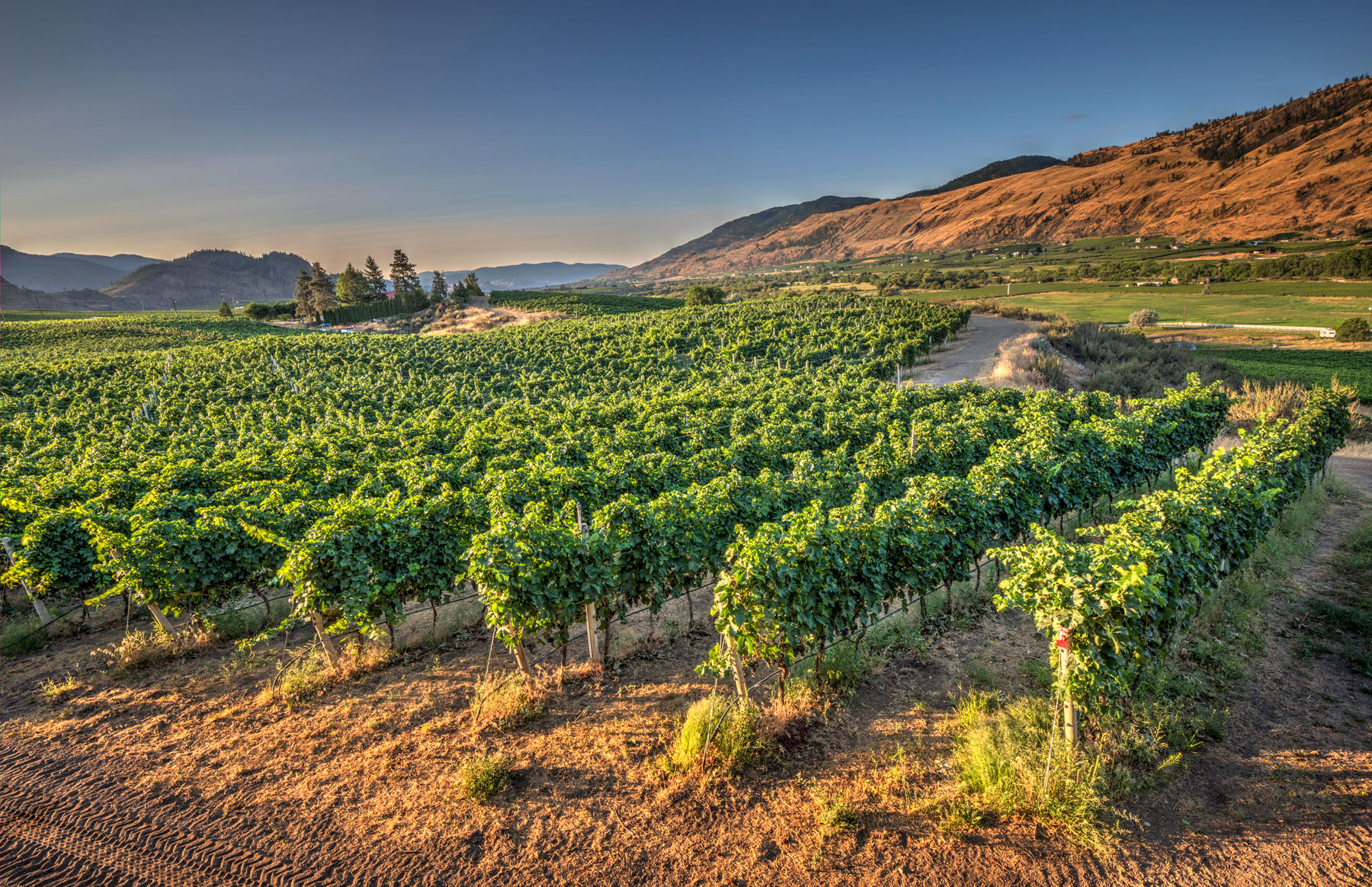
PHANTOM CREEK VINEYARD
Black Sage Bench, Lower terrace
Deep, Osoyoos Sandy Loam
Elevation: 315-330M
Sharing its name with the winery, Phantom Creek Vineyard is situated on the lower terraces of Black Sage Bench. Being merely 8 acres in size, this vineyard produces wine with significant elegancy, depth, and complexity.
In 1996, Viticulture expert Richard Cleave pioneered this vineyard, and since then, it has been widely recognized as one of Canada’s most outstanding single vineyards, producing premium wines consistently.
Wine critic John Schreiner has praised Phantom Creek as “One of the highest quality vineyards in Okanagan”, the wines crafted from this unique vineyard have garnered over 85 wine awards and have won “Best Wine in Canada” on three different occasions.
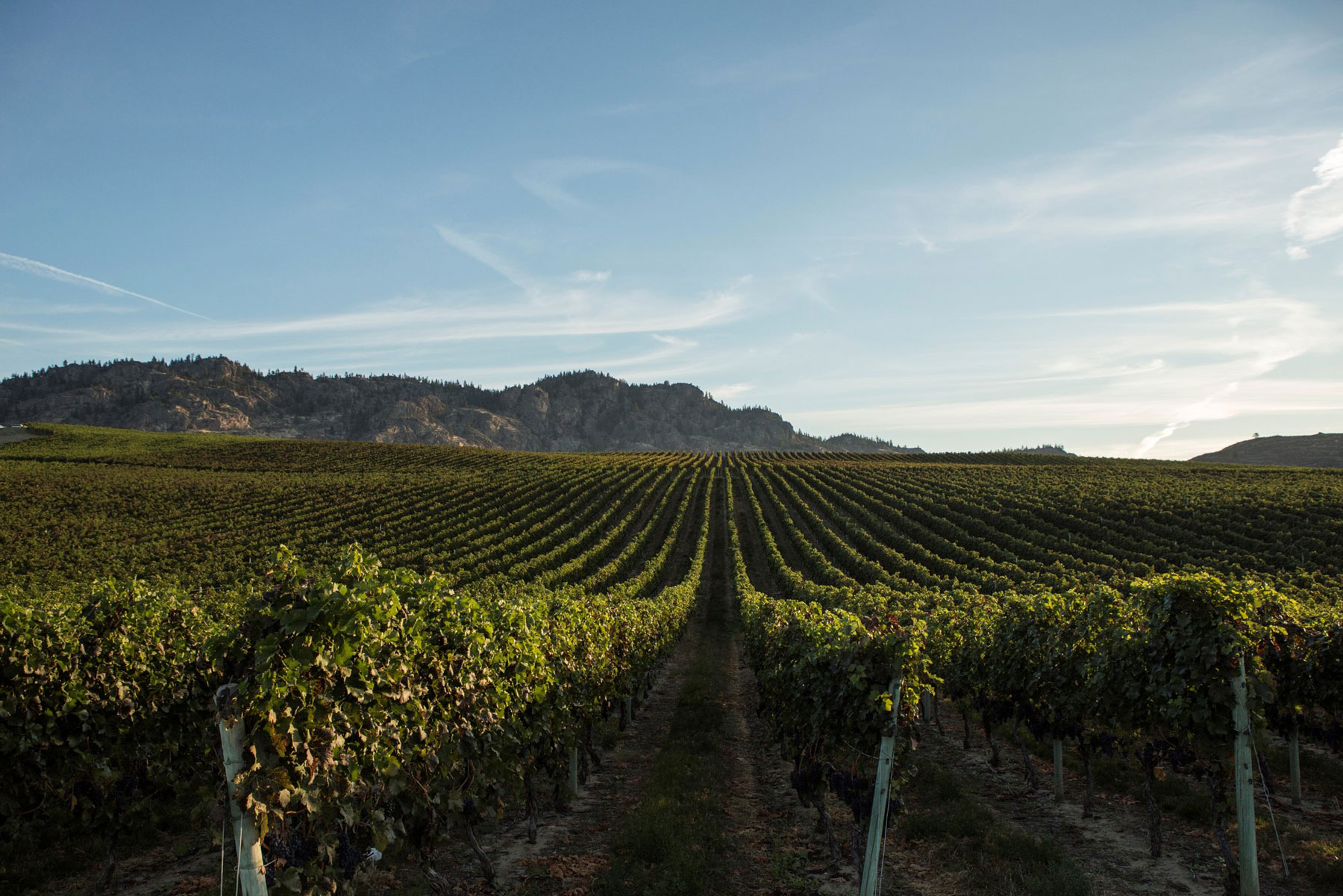
BECKER VINEYARD
Black Sage Bench, Upper terrace
Steep slope, Osoyoos Sandy Loam
Elevation: 325-380M
Tucked up against the Okanagan Highland mountains, Becker vineyard sits on steep slopes on the upper terraces of the Black Sage Bench. Benefiting from altitude, vines here enjoy extended growing season, prolonged house of sunlight, and cool breeze from the north contribute to its unique microclimate. The wines produced from Becker Vineyard display pronounced flavors yet retain vibrancy and freshness.
Becker Vineyard was initially developed in 1977 by Helmut Becker, a German viticulturist and was the chief of the Geisenheim Grape Breeding Institute. During that time, viticulture in Okanagan regions predominantly cultivated Vitis Labrusca and other hybrid grape varieties. The Becker project demonstrated that Vitis Vinifera could thrive in British Columbia and led the local wine industry towards a transition to this higher quality variety.
In 1993, Harry McWaters recognized the potential of Becker Vineyard for planting late ripening Bordeaux grape varieties. Within the same year, the very first plantation of Merlot, Cabernet Sauvignon and Cabernet Franc vines in the south Okanagan region have started. Syrah plantation was later added to the vineyard. As one of the award-winning top vineyards in the region, Becker Vineyard not only proves its exceptional quality but also establishes itself irreplaceable in the winemaking history of the Okanagan Valley.
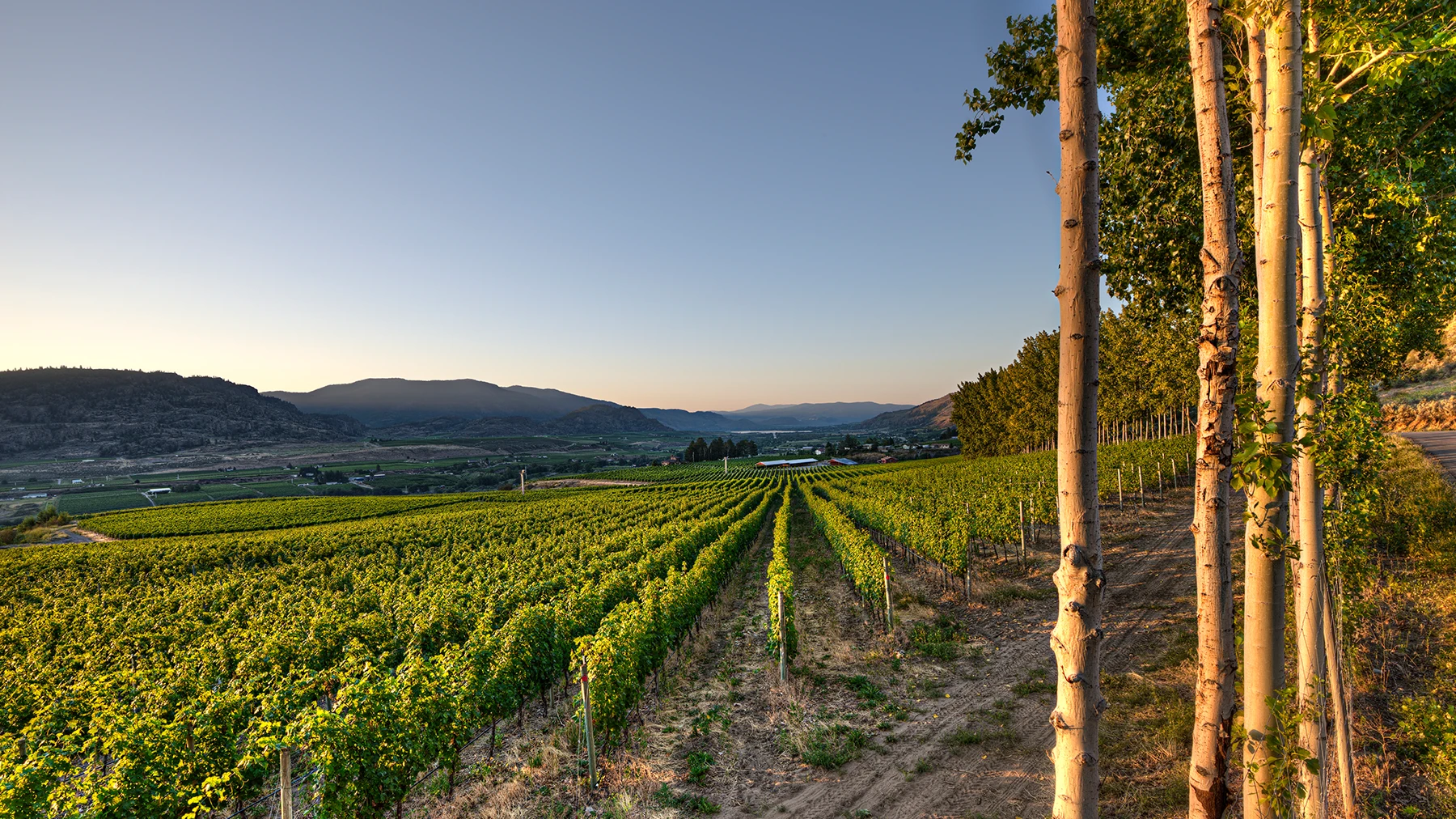
KOBAU VINEYARD
Golden Mile Bench
Rich Gravel
Elevation: 330-390M
This 63-aces vineyard is situated in the southern part of Golden Mile Bench, allowing the grapevines to bask in morning sunlight. This vineyard grows international grape varieties including Cabernet Sauvignon, Cabernet Franc, Syrah and Viognier. Cultivated in rich gravel soil, the wines produced from Kobau Vineyard are renowned for their unique mineral characteristics, structural complexity and overall balance, reflecting the unique terroir of the Golden Mile Bench. In the “Judgment of BC 2015” wine competition led by Steven Spurrier, The Kobau Vineyard Syrah garnered significant recognition for its outstanding expression, ultimately claiming the top accolade.
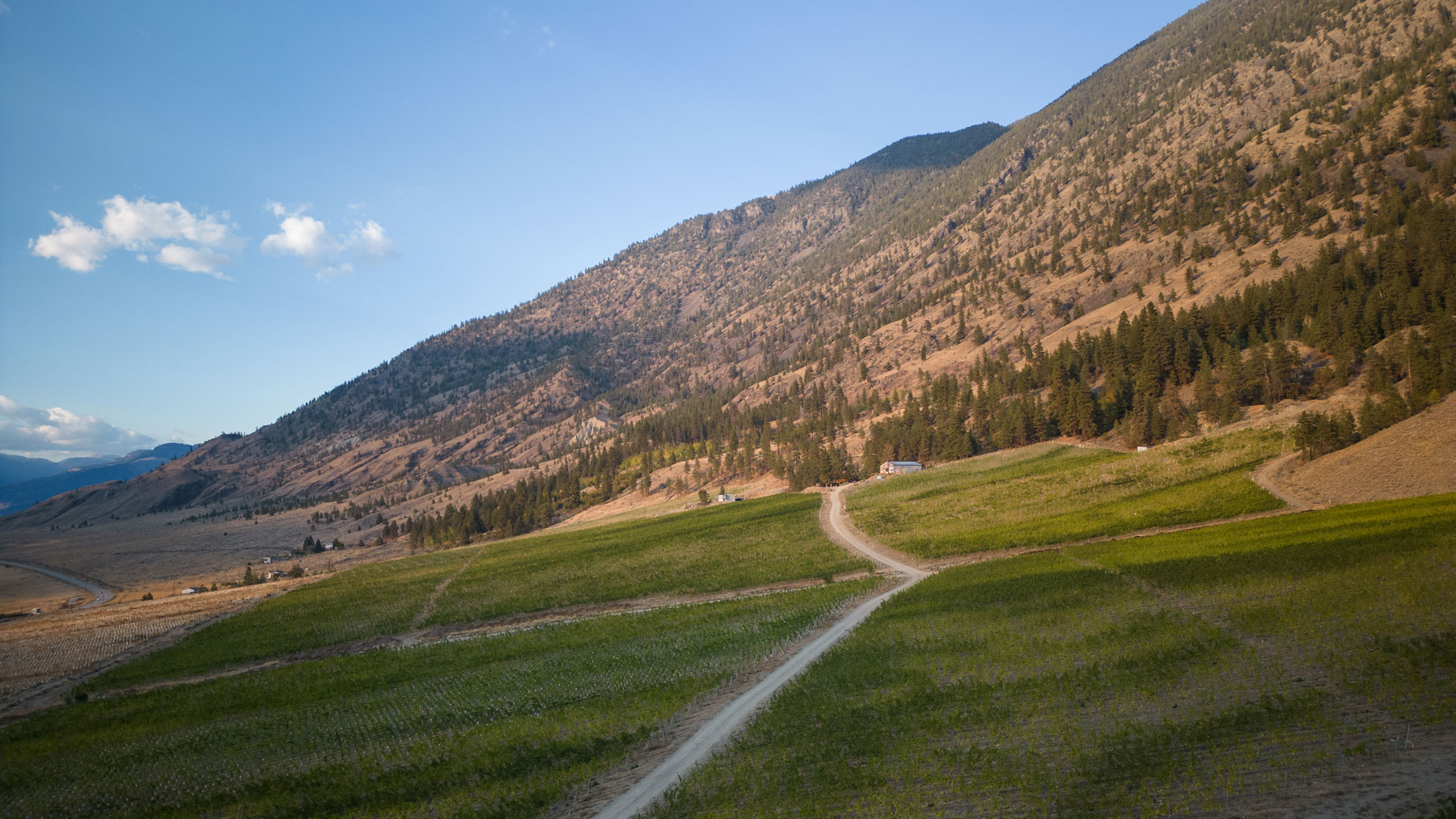
EVERNDEN SPRING VINEYARD
Similkameen Valley
Eastern Slope
Stony, silty loam soils formed from glacial rock
Beyond the Kobau Mountain lies the Similkameen Valley, where its unique geological features create optimal conditions for viticulture. The soil here harbors a rich glacial history, with a high degree of rock metamorphosis. The interplay of abundant stones, granite, gravel and silty soil set a sturdy foundation for the root systems.
In 2017, under the guidance of Olivier Humbrecht MW, Phantom Creek Estates decided to introduce two noble Alsatian varieties Pinot Gris and Riesling to the Evernden Spring Vineyard. Precise adjustments were made to accommodate the growth characteristics of the two noble varieties. The design of the vineyard also underwent deliberate consideration. The evenly distributed 2-acre parcel ensure optimal ripeness and align seamlessly with the Austrian Foudres barrels, with the intention that each 2-acre batch of grapes undergoes complete fermentation in a single barrel, delivering unique terroir expression of each plot.
Organic Certification
Phantom Creek Estates is acutely aware that exceptional wines can only be crafted from high-quality grapes, and that the vineyard's ecosystem is the starting point for everything.
We unwaveringly uphold our commitment to organic agriculture, rejecting the use of manufactured (also known as synthetic) herbicides, pesticides, and fertilizers, we seek to improve the soil of the vineyard and biodiversity, and restore natural balance of our land.
We rely on the application of natural fertilizers and traditional artisanal techniques to nurture our vineyards. We also have cultivation of cover crops to prevent soil erosion, improving life of the soil and enhance biodiversity. This comprehensive cultivation approach strengthens the ecological and sustainable aspects of our vineyards. In recognition of our unwavering commitment, all vineyards at Phantom Creek Estates achieved organic certification in 2021 by Ecocert.
